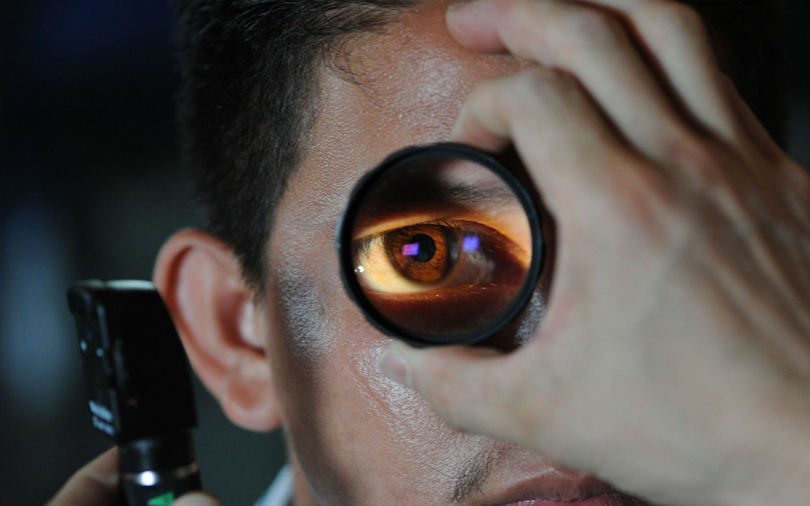
Google's DeepMind developing product to spot eye diseases


After using retinal images to assess cardiovascular risks, Alphabet Inc.-owned Google is developing a medical device that will help doctors identify more than 50 vision-related conditions by scanning the eyes.
According to a Bloomberg report that cites scientific journal Nature Medicine, London-based artificial intelligence firm DeepMind, which was acquired by Google in 2014, is working on an AI software that will aid doctors in identifying vision-threatning diseases.
The report said DeepMind is looking to start clinical trials next year in partnership with London’s Moorfields Eye Hospital and the University College London Institute of Ophthalmology.

Depending on the success of the trials, the company plans to roll out regulator-approved devices that Moorfields will release across the UK. The devices will be free for the first five years. If successful, this will be the first product by DeepMind AI that would go commercial.
The company last year was in the face of controversy in the UK because of collecting data of 1.6 million patients to develop an app for doctors that would help them identify patients at the risk of acute kidney injury.
However, Bloomberg reported that this time DeepMind has already taken steps to avoid issues with the country's privacy watchdog. The report cited a senior doctor at Moorfields as saying that the data of 16,000 eye scans being used for the technology had been annonymised and that it had stopped DeepMind from identifying the patients.

In an effort to develop the AI software, DeepMind and Moorfields are experimenting with the optical coherence tomography (OCT) scan that is used to identify the level of muscular degeneration in eyes and other disorders linked to other conditions such as diabetes.
But due to the use of OCT scanners, the UK doesn't have enough expert doctors or trained professionals who can interpret the imagery. This leads to a doctor consult which delays the process for patients who might be heading towards a serious vision-related condition.
In its initial tests of the software where DeepMind asked the software to identify 1,000 scans that were not used to train the system and compared the results with that of four senior opthalmologists and optometrists and found the software to be 94% efficient.

The report also said that the AI returned zero false nagatives and two false positives. This again is claimed to be better than what humans could do.
DeepMind’s software used two separate neural networks, a kind of machine learning loosely based on how the human brain works. One neural network labels features in OCT images associated with eye diseases while the other diagnoses eye conditions based on these features.
Google is also working on other health-related initiatives. One of its arms, Verily, has been working on extending life using AI.

